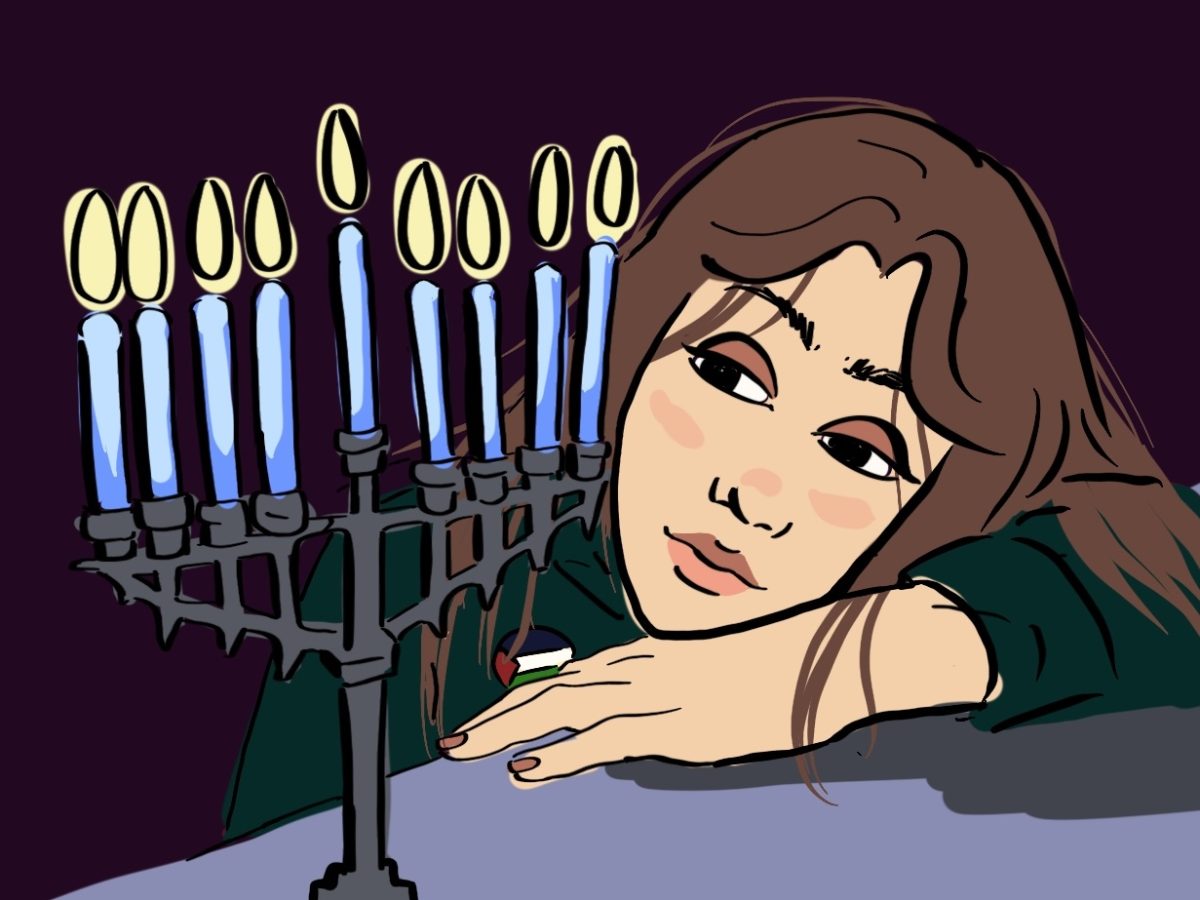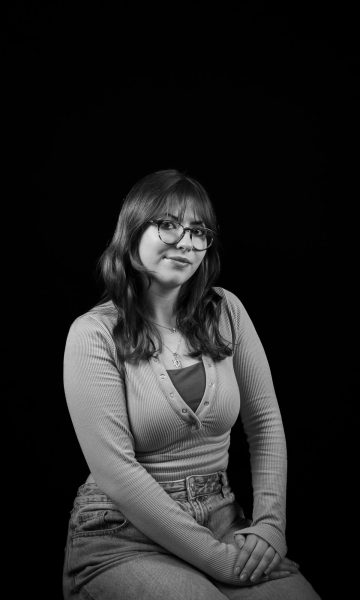Like the average college student, I typically avoid watching cable news as much as possible.
But this past Friday, I found myself sitting on the couch with my parents, eating Thanksgiving leftovers, wrapped up in the latest updates on the Israel-Hamas hostage release.
I couldn’t help but feel moved to tears while watching the first group of hostages reunited with their loved ones after almost two months of no contact.
While the truce represents a long-awaited step towards a resolution, it’s still not enough. We must call for a permanent ceasefire and an end to the occupation.
I am Jewish, Israeli and the granddaughter of Holocaust survivors.
As an opinion columnist, I try not to lead with my identity—my goal is always to allow my argument to speak for itself. When it comes to Israel and Palestine, though, I find that if I don’t highlight my identity, no one will listen to me.
When Jews voice support and solidarity for Palestinian liberation, they are often met with insults from their fellow Jews, being called a “self-hating Jew” and having their Judaism called into question.
This is why I want to highlight my pride in all aspects of my identity. I love being Jewish, and I’m not ashamed of being Israeli as much as I would be ashamed of being American.
In fact, my Jewish values are what inform my criticism of Israel’s occupation. My family has always taught me to question authority and speak up for what is right, even when it isn’t so popular and even when it feels like the rest of the Jewish community disagrees.
If being Jewish in college wasn’t isolating enough, I struggle to interact with Jewish campus organizations without feeling like a bit of an imposter.
This isn’t because I don’t feel religious enough, but because I don’t feel Zionist enough.
Hillel International, the largest Jewish campus organization in the world, describes itself as “steadfastly committed to the support of Israel,” according to its Israel Guidelines.
When I attend an event at UVM Hillel, I can’t help but feel a little uncomfortable when greeted by a poster of the father of modern political Zionism, Theodor Herzl.
It doesn’t help that Matt Vogel, executive director of UVM Hillel, recently posted a statement on Instagram condemning a rally calling for a ceasefire that occurred Nov. 9.
“We believe every student has a right to a supportive jewish community. some students will find that in hillel, some will not,” stated Vogel in a Nov. 9 Instagram comment when asked where the support was for Jewish students in favor of a ceasefire.
For me, reading that comment was almost relieving. Vogel had articulated something I had felt was true for a long time: Hillel is not always a supportive Jewish community for me.
But as an anti-Zionist Jew, there isn’t a supportive community for me on campus. On my way to class, my stomach drops as I read posters conflating Judaism and Zionism.
Zionism isn’t about Judaism or the theoretical “right for a Jewish homeland.” In reality, Zionism is about upholding the state of Israel.
Right-wing Christian Zionists are the largest and most powerful political bloc in the U.S. supporting Israel, according to an Oct. 3 article in Al Shakaba. They only align themselves with Zionism to fulfill their own beliefs about the end-times, where Jews and other non-believers will be sent to hell, according to an Oct. 22 MSNBC article.
I have found comfort in attending the same rallies and events that Zionists deem antisemitic. Despite the fear-mongering, I have found support and acceptance from not only proud non-Zionist Jews, but also from many people with ties to the Middle East.
Still, I cannot shun the rest of the Jewish community. I have had much first-hand experience with the pro-Israel propaganda pervasive in Jewish organizations since I was a little kid.
I know it’s scary to question what everyone has told you your entire life.
I try to give others the benefit of the doubt, even when they don’t extend it to me. I know there’s less risk in my expression of dissent than when it comes from a Muslim and/or Arab student.
However, in light of the recent shooting of three Palestinian American students wearing keffiyehs and speaking Arabic in Burlington, I struggle to remain composed as Zionists offer empty words of condolence.
Condemnations of “hate in all forms” from the administration and other Zionist groups feel cheap without acknowledgements of how they have contributed to a festering atmosphere of rising Islamophobic and anti-Arab sentiment.
As a Jewish student, I know the importance of calling out and combating antisemitism when I see it. But that also means I know the importance of allyship and standing in solidarity with other oppressed groups when they need support.
Our efforts to combat antisemitism should never involve racist rhetoric or come at the expense of the safety of other groups.
In a time when Palestinian students are being targeted for their identities, it is important now more than ever that we, as students, use our voices to speak up against injustice.
In this moment, allyship is crucial: we have to show our fellow Muslim and Middle Eastern students that they are not alone and that we stand with them.














